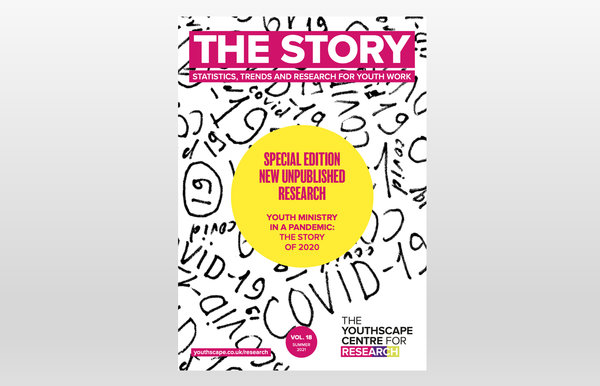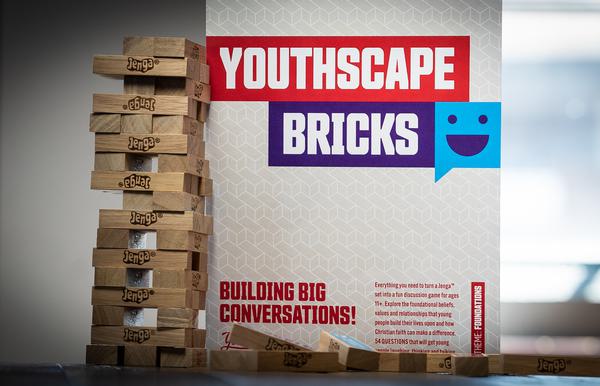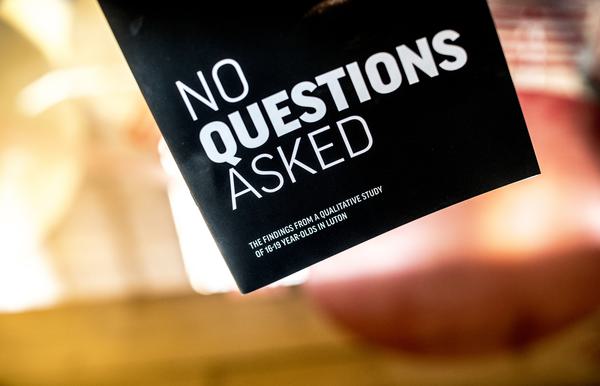The Church of England plans to double its number of young people in ten years. It’s an ambitious aim – is the Church ready to change to make it happen?
The Church of England is currently setting out its vision for the next ten years*, and one of the priorities being proposed is “doubling the number of children and young active disciples in the Church of England by 2030”. This is really good news.
First, a denomination is talking and making plans about reaching more young people. The importance of this first step is not to be underestimated. Despite the terrifying statistics, accelerating decline and the disproportionately bad impact of COVID on youth ministry compared to other areas of church life, the challenge of reaching young people is not top of many churches’ agendas, and doesn’t even make the list for quite a few. To borrow the example of climate change as a metaphor, the Church as a whole is where that issue was a few decades ago…
“My church’s youth group is growing so it can’t be true.”
“It’s just a cycle, people always come back to the church when they’re older.”
“I saw a statistic that shows young people are really interested in faith, so it’s not a problem.”
Inevitably, at some point, the numbers of young people in the Church will be so small, that those in denial will concede, for the most part. But by then it may be too late.
If acknowledging the reality is hard, you wait until we get on to how to fix the problem. The challenges to our way of working as a Church are going to be far deeper and more painful than we might expect. It’s not a matter of a few changes to the way we run youth groups. Oh, that it were so simple! It might be the whole concept of a youth group itself that needs to change. And that’s only the beginning.
Three challenges for engaging Gen Z
Three problems emerge, and to show I can prepare an old-style sermon like the best of them, I’m going to make them all begin with the letter ‘c’.
That’s contact, credibility and curiosity.
If you’re going to grow youth ministry in the church, let alone double it in a decade, you’ll need to actually meet some teenagers. And that’s harder than you might think. They’re not coming to church already, we know that. Nor are they going to turn up at the door if you leaflet the local area announcing a new youth group is starting (note – this strategy actually worked very well in the 1980s when I started out in youth work). Think about it, where are you going to meet the young people you want to end up working with? They’re not out on the street corners in large numbers anymore. They’re home connecting through social media and chatting whilst they play online games. Schools work (still vital, hear me) is less accessible and more secular than ever. Not many local secondary schools will want a Christian-themed assembly these days. Asking young people in existing groups to bring their friends is essential, but the numbers of young people in churches are small! Average size is 5-7 teenagers. That alone is unlikely to make a big difference, and none at all if you’re starting from scratch with no young people.
So, Church, we have a challenge. How do we engage young people in the next ten years. Where? Discuss.
"We’re not doomed to failure. The gospel thrives in moments of crisis and change. I’ve seen – literally with my own eyes! – churches reach out to young people and create loving missional youth ministry from nothing. There is hope."
That brings us on to curiosity – by which I mean ‘lack of’ when it comes to Christian faith. How do you do apologetics to a generation that isn’t asking any questions? Not that there isn’t something there, it’s just buried deep. Young people are made in the image of God, of course there is something within all of us all longing for that connection. But the secularisation of everyday life and culture has buried it underneath GCSEs, PS5s, WhatsApp and just, well, life.
Now we come to the biggest challenge, and that’s credibility. Or lack of it. As the tectonic plates of our way of life shift in the West, old ways of understanding the world (I’m going to summarise them with the word ‘modernism’) have been tried and found wanting. Young people look at the way the world worked for the last hundred years and wonder “what did it bring?”. So far: a climate crisis, terrorism and division, extremism, a broken economy that means I may never own a home. And the Church? Well, we’re seen as part of the old institutions of modernism that got us here. In a nutshell, we’re the bad guys. Add the scandal of child abuse that continues to shame us, and you have, to put it mildly, a credibility problem with Gen Z.
Now, you and I know the story is much more complicated than that. We know the Church is broken in parts, yes, but also serving and loving people in the most difficult of places. But credibility is built on what people think, not what’s objectively true.
Are we ready to change?
Back to the Church of England and their priority to engage young people. It’s a bold and brilliant strategy and, frankly, should be shared by every denomination and church. My point in looking at the challenges is not to say we are doomed to failure. We’re not. The gospel thrives in moments of crisis and change. I’ve seen – literally with my own eyes! – churches reach out to young people and create loving missional youth ministry from nothing. There is hope. In fact, you’re probably at an advantage if you’re starting from little or nothing, because you don’t first have to battle to change what you have. And whilst the gospel thrives in change, the Church is, well, not so good at that.
So, the next ten years need three things I’m going to suggest. The first is a bold and ambitious plan to engage young people. The Church of England have taken a lead on that. The second is a willingness to accept and understand the challenges and the scale of the change needed. That’s the next bit of the journey. And the third? Prayer. Because this is God’s work. And be very sure, He is at work in the lives of millions of young people right now. It’s our job to see where that is happening and go and join in. It just won’t look much like youth work does right now.
* For the record, I was involved in early discussion and planning for the strategy in 2020.











